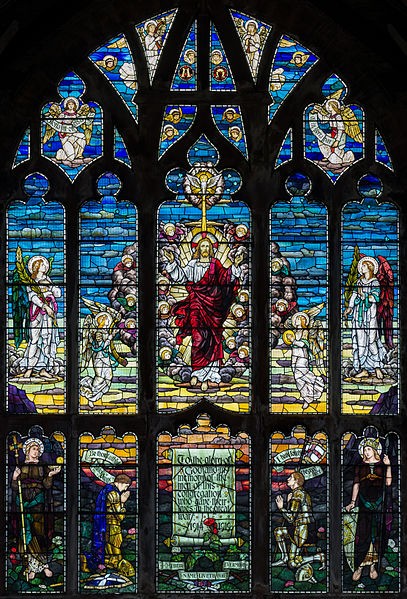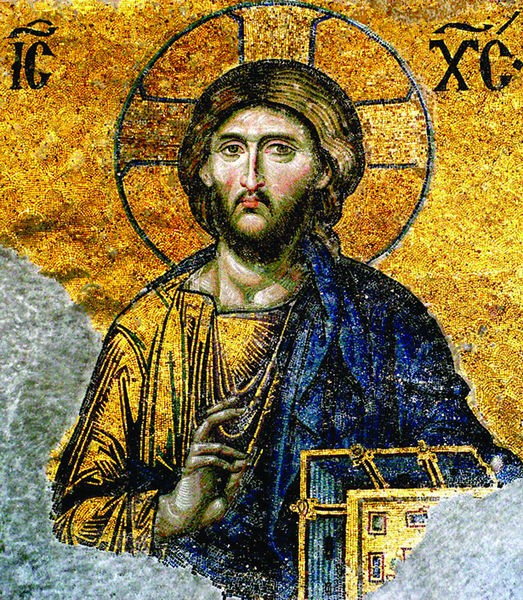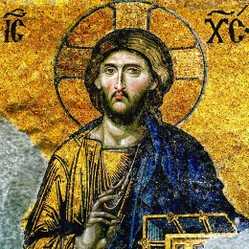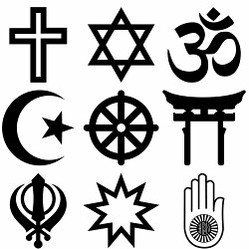Creeds, or statements of faith, like the Apostle's Creed or the Nicene Creed, are central in many Christian worship services, including both Catholic, and some Protestant services. But not all Christians recite creeds.
I attended a Baptist church, for three years, that did not include creeds in the service, and at this church, I was swayed by the Pastors' explanations of why they did not include creeds, and also came up with some reasons of my own.
Now I choose to not recite creeds and encourage others, whether Christians attending church, non-Christians visiting churches, or church leadership, to think more critically about creeds. Below I explain how avoiding creeds can encourage sincerity of belief, and also acknowledge and respect the diversity inherent in Christian belief.











 The Shaming of Femininity and Elevation of Masculinityon 07/13/2017
The Shaming of Femininity and Elevation of Masculinityon 07/13/2017
 What is Genderqueer or Non-Binary Gender?on 10/16/2015
What is Genderqueer or Non-Binary Gender?on 10/16/2015
 Resources for Learning Spanish Free Onlineon 04/13/2016
Resources for Learning Spanish Free Onlineon 04/13/2016
 Ways Native Plants Can Help Control Invasive Plantson 05/26/2016
Ways Native Plants Can Help Control Invasive Plantson 05/26/2016



Questions? Comments? Feedback?
I am a Catholic because I attend mass weekly,because it is meaningful to me. I do not agree with everything that a priest says, but that's the joy of the Catholic Church, We don't throw out people because of disagreement. I have had some strong disagreements with m local priests, but I still attend their masses, and they do nothing to prevent me from doing so.
Yeah, that makes sense about Protestantism. I have, I guess you could call it a "quibble", with how people talk about the Catholic church. Like, I'm aware that (with the exception of a few small splinter groups that call themselves "Catholic") the official Roman Catholic Church is standardized with respects to beliefs, and the official church stance is that people who deviate from these beliefs aren't Catholic.
But viewed from the outside, the term "Catholic" is used in everyday speech to refer to people who are culturally Catholic, identify as Catholic, and/or attend Catholic mass regularly. For example, most demographic surveys that identify Catholics as a religious group, don't survey anything about their beliefs, they just respect self-identification. And among these people, my experience has been that many of them deviate considerably from official church stances on a wide range of issues, including stuff related to the content of the creeds.
Protestantism is heavily fragmented and there are differences between churches. The Catholic position is more uniform, but even in the RC Church there are differences of opinion. These tend to be about issues that developed after the creed was formulated, though the Filioque issue, about a clause in the creed, still festers between Catholics and Orthodox. I have not noticed much if any difference within the RC church about the content of the creed. The differences are mainly about ethical issues, women priests and ecumenism
Just a caveat, I'm cautious about saying "Catholics believe X" or "Protestants believe X." I think there are official church stances (which can differ hugely between denominations), and it's also common for individuals to hold beliefs different from the stances. For example, I've attended a number of Protestant churches where the dominant view of the pastors and most congregants, are that the revelation of the Bible comes through the human institutions that led to its canonization, i.e. more close to what you described as the "Catholic" view.
I've also talked to a fair number of Christians who see the Bible in its widely canonized form as a bit of a historical accident, and subject to the cultural biases of the time...so that the idea is, the divine truth contained in the Bible was distorted through the cultural biases evident both in the writing of the texts, and the political process of canonization. So, for example, these people take sexism in the Bible with a grain of salt, because the Bible was written in the context of a largely sexist society. In my experience, this viewpoint is actually pretty dominant within many of the mainline protestant congregations, like ELCA, UCC, Episcopal, etc.
The Bible, as you say, was compiled after the apostolic age, but from material deriving from that period. Here we come to a major difference in theology between Catholic and Protestant traditions. Protestants see the Bible as the revelation of God, but Catholics believe that the revelation comes in the Spirit present in the church, and therefore the New Testament and all other writings express that Spirit. The books of the New Testament were chosen from people who were either apostles or close to them so that they would faithfully express the teachings of Christ to which the Spirit testifies.
Creeds are later still and were baptismal formulae that underwent a process of development as Christian Theology evolved. They affirm the main outlines of the Trinitarian faith, but they ignore later differences between Catholic and Protestant.
Yeah, that makes sense!
Part of the reason that I don't recite them is that I tend to have a somewhat different perspective on what aspects of a belief system are central to religion, for me. The creeds seem to focus on theological details that seem less important than the day-to-day values that drive how your belief system actually plays out, and translates into actions.
I think if people understand the principles behind those creed and imbibe the values they can really have positive impact. However; blindly accepting the beliefs may not be beneficial at all, hence I understand when you say that you do not recite them, you are actually looking for substance and practical experiences.